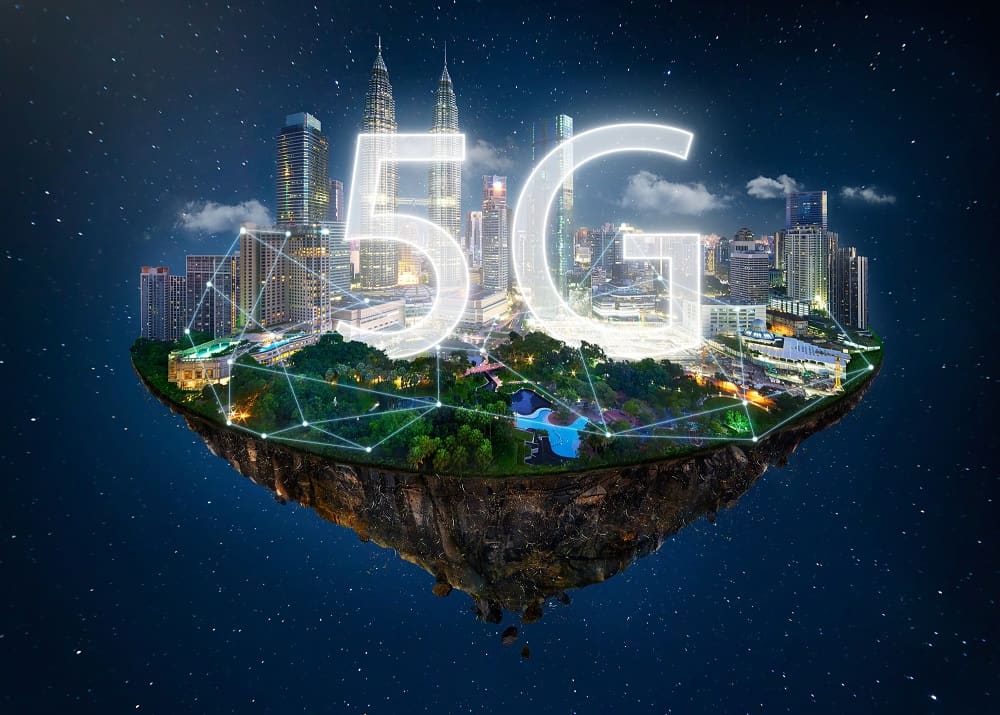Mobile companies are beginning to roll-out 5G networks all over the world. Businesses, consumers, and technology enthusiasts have been waiting for the large scale roll-out of 5G for several years.
Why?
5G isn’t just a modest increase over the current mobile 4G networks that most people use—it’s a game-changer. 5G will create new opportunities for innovation and connectivity. It will change the way people and businesses use the internet.
What is 5G?
5G is the fifth-generation mobile network. Most of the world currently runs on 4G or 3G. The theoretical fastest speed of a 4G network is 300 Mbps. The vast majority of 4G users rarely experience speeds faster than 100 Mbps.
5G has an average speed of 1Gbps, with a top speed of 1.4 Gbps. 5G is an order of magnitude faster than what is now widely available on mobile networks.
Think about what it’s like to try and stream a video over your current cellular network. Even with a great connection, it takes at least a minute for the video to start. Often the video will lag, and sometimes it’s impossible to make it through an entire video unless you connect to Wi-Fi.
When you stream a video on 5G, it will load immediately. The experience will not only be superior to your current 4G streaming experience, but it will be better than your current Wi-Fi streaming experience.
5G mobile networks will allow much more data to be streamed much faster than ever before. Once 5G is completely rolled out, the age of mobile broadband will begin.
How Will 5G Impact Your Business?
5G will be great for people watching Netflix or working from their laptops. But, what will it mean for your business?
Any business that relies on the internet will be affected by 5G. Because 5G is essentially a mobile broadband technology, it gives businesses more options for their IT operations. You will have one more way to connect servers, systems, and terminals to each other.
If your business has satellite offices, runs apps on the cloud, delivers apps on the cloud, or uses any type of enterprise software, 5G will change how you access and distribute data.
Because 5G is an over-the-air data delivery mechanism, it gives you more flexibility in the design and layout of your IT infrastructure. It makes it easier to support a remote workforce, and 5G allows you to better serve your customers. You will have faster access to information.
However, 5G will also bring new challenges. Encryption will be more critical than ever. Cybercriminals will also have access to faster speeds and more secure connections. Your business will need to work hard to protect the integrity of all of your internet connections.
What Industries Will Notice the Biggest Changes?
Every industry will notice changes once 5G is widely available. However, data-heavy businesses will notice the biggest changes.
Financial companies that require a constant stream of data will have one more tool to exploit. 5G will allow stock and commodity traders to make more transactions in an even shorter period of time.
Developers and businesses that create and use enterprise-level tools will find that 5G makes connectivity easier than ever. The market for these tools will expand, and companies will need to be even more innovative as the market becomes more crowded. Every information business will need to upgrade its IT infrastructure to take advantage of 5G.
Entertainment companies will benefit from faster speeds. More people will enjoy watching videos or playing data-intensive games from their smartphones and tablets. Cord-cutting will be even more attractive.
Traditional cable companies will be forced into offering some sort of mobile option to stave off the increased rate of cord-cutting as more people make their phones their primary entertainment device.
Manufacturers of consumer devices such as televisions, cameras, and Blu-ray devices will add 5G capabilities to make streaming and sharing easier than ever.
The number of smart devices and products will explode. 5G will allow everything to be connected.
How Will 5G Affect the Internet of Things?
The Internet of Things (IoT) is still in its infancy. Even with smart speakers, smart refrigerators, and smart thermostats, most consumer products are not currently connected to anything other than a power outlet.
Current mobile bandwidth is a bottleneck. Most smart devices require a Wi-Fi connection to work. This means trusting consumers to set up the devices correctly.
But, 5G will change that. A 5G product will come out of the box connected to a cellular network. The consumer won’t have to do anything to connect their device to the web.
But, the real changes won’t be in the consumer IoT industry.
The major innovations will come in the Industrial Internet of Things (IIoT). Construction companies, manufacturers, shipping companies, and transportation businesses will use 5G to further automate their operations.
This technology will allow IIoT devices greater access to the data they need to automate complex tasks. When you pair 5G with artificial intelligence and machine learning, a small handful of engineers will be able to safely run operations all over the world through IIoT devices.
5G is already available in a handful of markets. As it becomes more widely available, everything about the way we connect to the internet will change. This latest mobile network will allow everyone to experience the full power of the internet.
Every business and every consumer will have true high-speed internet access everywhere they go.

